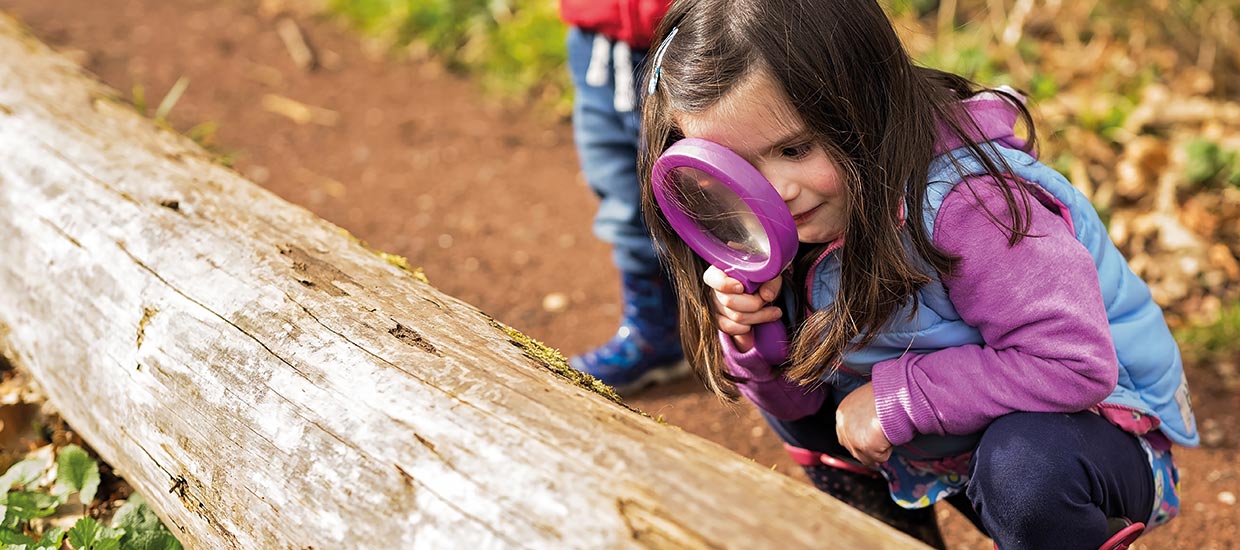Make friends with wildlife
While not strictly a grant, the Nature Friendly Schools project offers free expert support for outdoor learning, says Jane Hughes

Learning about the natural world in outdoor settings has been shown to build resilience and coping strategies in pupils, supporting the development of social skills outside conventional classroom environments.
That’s why the government is funding a ground-breaking project called Nature Friendly Schools.
The aim is to build teachers’ confidence and ability to drive forward outdoor learning, while at the same time removing current inequalities around access to nature – particularly among children living in more disadvantaged areas.
Over three years (from April 2020 to March 2023), the project will work with more than 350 schools. Each school gets access (online and in person) to its own trio of experts in outdoor learning, mental health and wellbeing for one year. The team will work with the school on their identified barriers and concerns, supporting teachers in developing children’s social skills and interests, and helping pupils find and create calm places where nature can thrive.
Nature Friendly Schools has been designed to fuel creativity and a sense of adventure, allowing children to experience the joy that nature can bring. It will improve school grounds so that they’re more natural, with wildflower patches, sensory gardens and trails, container ponds and green spaces.
The project is led by The Royal Society of Wildlife Trusts, working in partnership with Resilience Through Nature Consortium members: YoungMinds, Groundwork, the Sensory Trust, Field Studies Council and six regional Wildlife Trusts. It will focus on schools with higher than average proportions of disadvantaged pupils.
Funding has been provided by the Department for Education, with support from the Department for Environment, Food & Rural Affairs and Natural England, as part of the government’s 25 Year Environment Plan to encourage children to be close to nature.
- For more information, visit naturefriendlyschools.co.uk
‘Our Nature Friendly Schools journey has already taken root’
‘We already had some ideas for making more out of our outdoor space when we were approached by Nature Friendly Schools. With 49.1% of our pupils eligible for free school meals, our primary school was eligible for the project. We applied and were accepted.
After speaking to our project education officer, Andrew, in the autumn term last year, we agreed on an outdoor classroom featuring a fire pit, some hollowed-out trees, an allotment area and a herb garden, as well as an additional firepit near some trees.
During the October half-term break, the teachers set about giving our existing outdoor area a makeover. We repurposed a grass space into a bamboo den and used the pallets to create a bug hotel. Plants donated from a garden centre provided the outline for the closed-off area. Deadwood logs encouraged a bug hotel and provided seating for the children.
With permission, we also raided a nearby skip and repurposed wood, garden waste, and even a bath. Wood from trees that were cut down to open up more usable space will be repurposed for the children. My hope is that pupils will be able to use tools to create tent pegs, sculptures, swing seats, and more.
The now-bare area can be cleared fully, and we can plant wildflowers to attract bees and other insects. The chippings to the side of the area could also form part of the floor of our new outdoor classroom.
Andrew has led some excellent training on outdoor learning. Staff are now more confident and open to the idea of adding outdoor segments to learning, which is a great step forward for our school. We have restarted our outdoor learning sessions, which will provide a regular amount of time that the children are able to spend outdoors across all year groups.
My class had their first Forest School session, which was fantastic. We noted improved communication between the children when undertaking tasks, and a willingness to look after the area when it was time to tidy up.
Children who were initially shy really came out of their shell when presented with fun, small, achievable tasks. We also saw brilliance in the children’s imaginations as they showed evidence of intuition, such as when they created a scarecrow after I told them that birds like to prey on insects.
I can’t believe that we have done so much in such a short time! My enthusiasm is still as high as it was at the start, and I am really looking forward to seeing the physical changes around the school. I am hoping we can get all of the classes to do some planting of food and flowers and get everyone enthused to grow.’
- Mark Hemmerman, teacher, Stockwell Academy, Hull (372 pupils). Stockwell Academy is part of the Hull Collaborative Academy Trust (HCAT), a family of schools in and around Kingston upon Hull and the East Riding of Yorkshire
More on grants
